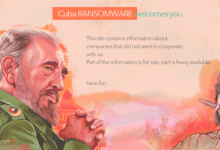Ethical Hacking: The Art of Protecting Systems from Cyber Attacks
Ethical Hacking: The Art of Protecting Systems from Cyber Attacks
In today’s digitally interconnected world, the threat of cyber attacks looms large. Cybercriminals are constantly finding new ways to exploit vulnerabilities in computer systems, leaving individuals, businesses, and even governments vulnerable to financial losses, privacy breaches, and reputational damage. However, in this battle for digital security, one unique discipline has emerged as a potent weapon against cyber threats: Ethical Hacking.
Ethical hacking, often referred to as white-hat hacking, is the practice of using hacking techniques to identify and fix weaknesses in computer systems, networks, or applications. Unlike their malicious counterparts, ethical hackers, also known as penetration testers or security analysts, work with the consent of system owners to protect against cyber attacks.
The term “hacker” often carries negative connotations, conjuring up images of shadowy figures in dark rooms, seeking to breach the security of systems for personal gain. However, ethical hacking aims to change this perception, as it focuses on uncovering vulnerabilities with an aim to fix them before malicious individuals can exploit them.
The importance of ethical hacking cannot be overstated. Its main goal is to safeguard data by identifying potential entry points for cybercriminals and addressing them before an attack occurs. By mimicking the strategies and techniques of malicious hackers, ethical hackers can reveal weaknesses in networks, applications, or even physical security measures, allowing organizations to strengthen their defenses.
The scope of ethical hacking is vast and constantly evolving, much like the cyber threats it aims to counter. Some common areas of focus include network security, web application security, wireless network security, and cloud security – each demanding specialized knowledge and skill sets to efficiently identify and mitigate vulnerabilities.
Network security, for instance, involves assessing the security of an organization’s network infrastructure to identify weaknesses such as unpatched systems, misconfigured firewalls, or insecure network protocols. By probing these vulnerabilities, ethical hackers can provide organizations with actionable insights on how to enhance their network security posture.
Similarly, web application security evaluates the vulnerability of websites and web applications to attacks such as SQL injections, cross-site scripting, or unauthorized access. Ethical hackers use various methods, tools, and techniques to simulate real-world attacks and uncover security flaws that could expose sensitive data or enable unauthorized access.
Wireless network security, on the other hand, focuses on securing wireless networks against unauthorized access. By attempting to crack Wi-Fi passwords, intercept network traffic, or compromise connected devices, ethical hackers can help organizations identify weak spots and develop strategies to protect their wireless infrastructure.
Lastly, cloud security encompasses assessing the security of enterprise cloud environments, which are increasingly being targeted by cybercriminals. Ethical hackers simulate attacks against cloud infrastructure, data storage, and access controls to ensure organizations have a robust defense in place to protect sensitive information stored in the cloud.
Overall, ethical hacking plays a crucial role in protecting our digital infrastructure from cyber attacks. By proactively identifying vulnerabilities and implementing appropriate measures, ethical hackers help organizations minimize the risks associated with cybersecurity threats.
However, ethical hacking is not without its challenges. With the evolving threat landscape and constantly emerging attack techniques, ethical hackers must continually update their knowledge and skills to stay ahead of cybercriminals. Additionally, they must adhere to strict ethical guidelines and legal frameworks to ensure their actions are lawful and within the boundaries of consent.
In conclusion, ethical hacking is a necessary and valuable practice in our cyber-dependent world. It serves as a vital defense mechanism by identifying vulnerabilities and recommending measures to protect systems from malicious attacks. With the support and expertise of ethical hackers, individuals, businesses, and governments can effectively fortify their digital infrastructure and secure their digital assets.





